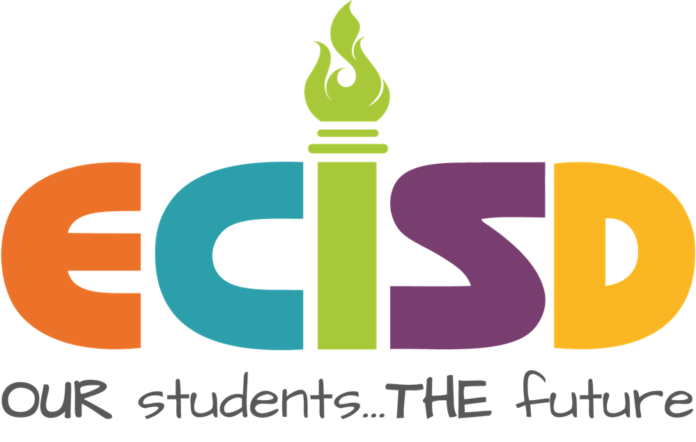Ector County ISD’s Gifted and Talented program has undergone revisions, but some things will stay the same.
Numbers haven’t been finalized, but going into this year, the district had 1,032 elementary students identified as GT; 774 in middle school; and 964 in high school.
Kindergarten will continue to start services after identification as GT on March 1, which is per state law, Director of Advanced Academics Kristen Vesely said.
“… Everybody else will start first within that first month of school. First grade and second grade will be served through inclusion, meaning the cluster teacher, the teacher … teacher of record will differentiate for giftedness. For … third grade, fourth grade, fifth grade, and then the two campuses that have sixth grades … will be served through pull out,” Vesely said.
“We’ll have a GT certified teacher go and pull them on campus, and they’ll provide some GT programming for them at those locations. This year, we had three campuses that were full inclusion, meaning their students were never pulled out. Those campuses will go back to being inclusion and pull out. … We won’t have any full inclusion campuses any longer. We’ll actually be able to have the personnel to pull the students and to treat all the campuses similarly,” she added.
Vesely said they are changing their personnel a little bit.
” … In our feedback surveys from the teachers, they felt like they were not supported. They didn’t really know what they were doing; they just weren’t confident. To help build their capacity with gifted students, those specialists will go into those classes and offer the real-time, on-the-job training and support. Because they’re dedicated to just those three grade levels, we’ll really be able to build the capacity of the first and second grade teachers before the kindergarten teachers come on with their students in March,” Vesely said.
She added that they will also have secondary specialists who are going to start supporting teachers in secondary schools.
One of the main focuses for the advisory committee next year will be secondary GT services figuring out what can be improved and how they can be better served.
There also will be a middle school Camp SIP this summer. SIP stands for Scholars in Progress.
“… The really exciting thing for me is at the high school level. Our advanced CTE classes are now going to be able to be a place where our GT students are served because not all of our GT students are collegiate bound. They’re not really all going in that direction. This gives them the opportunity to still be supported, to still work on those GT skills, to still have that SEL component. But it’ll just be in the CTE advanced classes,” she said.
An advanced class will have two prerequisites.
Vesely said the advanced CTE students were only served previously in the four core subjects — math, science, social studies and English.
“If they weren’t successful or their parents really saw they were struggling and then decided this is not really worth it, then they would exit the student, so the student would choose to let go of their GT designation just because they didn’t want to be in those advanced classes anymore,” she said. “This way, even if AP/IB (Advanced Placement/International Baccalaureate) is not the direction they want to go, they can still get served as a GT student.”
Vesely said they will have eight specialists. She’s not sure how they are going to be divided.
“It’s going to depend on who applies. The majority of them will be in elementary … because we have to support 28 campuses in those grade levels. We will figure out how to make it work. And once we do it, then we’ll know if we need more people, because we’re looking at two grade levels on 28 campuses,” Vesely said.
The program will use the same 21 positions it already had.
“We just kind of reconfigured. Our pull out changed, so this year, we pull out for the whole day,” she said.
Next year, students will be pulled out for two hours.
“… Full day is kind of a misnomer, because most of them would start between 8:30 and 9 o’clock and then they would go back to their classroom at 2:30. In there, they have PE, they have lunch, they have any specials that they would have to be pulled back into the school for. By the time you get it all done, on average, it was about two hours anyway. So we’re just kind of getting rid of the wasted time and we’re looking at making sure that it’s quality that’s happening so we can keep the kid in high rigor for a couple of hours with some brain breaks in there much easier and much more effectively than trying to keep them for four and a half, six hours,” Vesely said.
She added that teachers will have more time with students to pull some students individually and work on talent development plans with them.
Asked if they are looking to hire more GT teachers, Vesely said they can’t.
“We won’t be able to hire any for the coming year. We’re going to evaluate after this year and see if there’s a need,” she said.
She added that she’s hoping they will have a chance to gain more personnel.
“Right now, we have a very strong parent voice for GT and very strong parent support. We’re hoping to continue that into next year; get some parent advocacy groups organized. … We want to start our Parent Advisory Committee, because we have our steering advisory committee that has some parents on it. But we’d like a parent advisory where it’s all parent voices and there’s no district personnel,” Vesely said.




